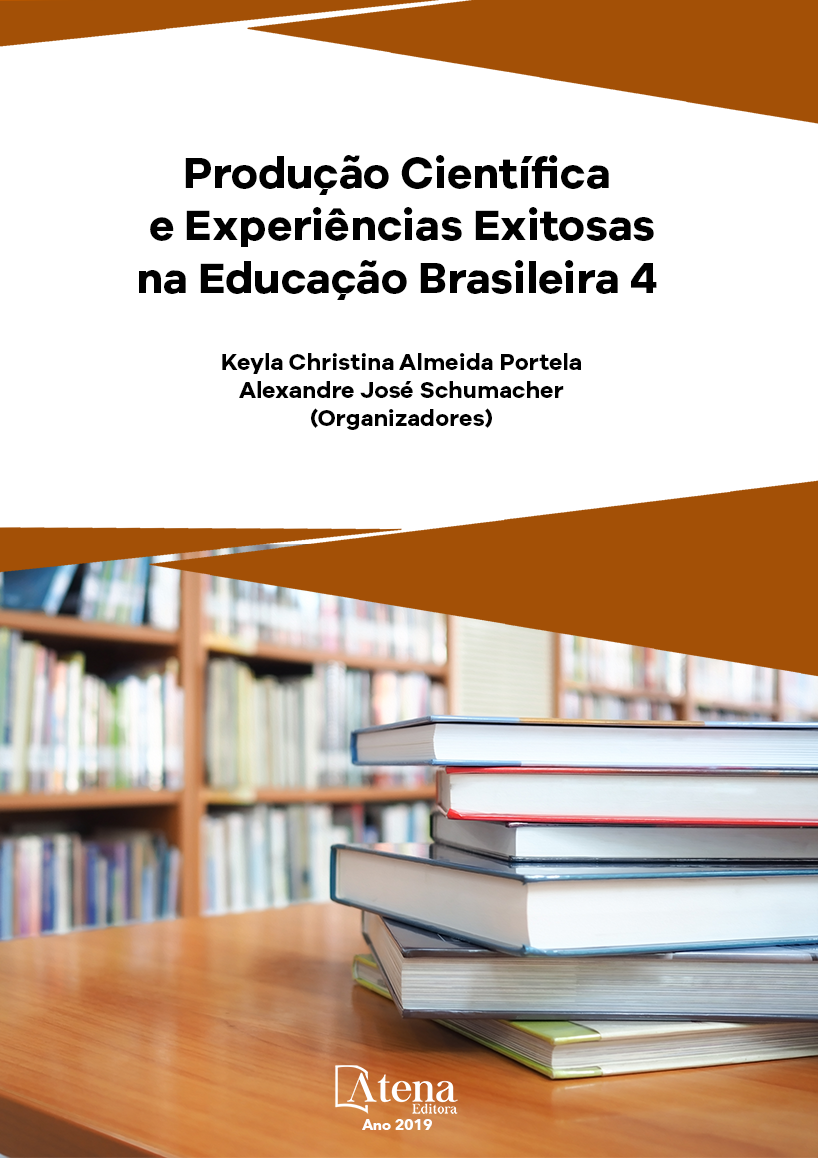
ESTUDO DA CONTRIBUIÇÃO DA MONITORIA PARA O ALUNO DE ENGENHARIA - METODOLOGIA DO TRABALHO CIENTÍFICO
O programa de monitoria
universitária faz parte do processo de ensino
e aprendizagem, promovendo a formação
integrada do aluno monitor, assim como
uma maior motivação e apoio ao discente. A
monitoria da disciplina metodologia do trabalho
científico no curso de engenharia se caracteriza
por uma abordagem mais teórica, onde são
aprendidos métodos e técnicas referentes à
pesquisa e a produção acadêmica, visando o
esclarecimento de princípios fundamentais da
redação científica e suas normas. As atividades
desenvolvidas tiveram como finalidade
promover habilidades e competências previstas,
estimulando a integração do conhecimento na
disciplina, que foram: apresentação oral e aula
prática em laboratório para redação de relatório
técnico. Onde o monitor ficou responsável por
auxiliar os discentes, antes das atividades,
enviando previamente esclarecimentos, vídeos
informativos e materiais necessários e durante
a prática prestando esclarecimentos sobre os
passos práticos a serem seguidos na primeira
experiência em laboratório. Os resultados da
monitoria foram avaliados, observando, os
atores de índices de aprovação e reprovação,
evasão e trancamentos durante um período
de 12 semestres. Por meio do estudo em
andamento pôde-se perceber a interferência positiva da monitoria na disciplina
metodologia do trabalho científico ministrada no curso de engenharia de materiais da
UFPB. Os discentes apresentaram um maior domínio das normas exigidas em um
relatório técnico e também um enriquecimento da pesquisa bibliográfica, através do
manuseio correto das ferramentas de buscas confiáveis no meio acadêmico. Logo,
essa ação tem se mostrado eficiente motivando o discente e contribuindo para o
decréscimo da evasão nos estágios iniciais do curso
ESTUDO DA CONTRIBUIÇÃO DA MONITORIA PARA O ALUNO DE ENGENHARIA - METODOLOGIA DO TRABALHO CIENTÍFICO
-
DOI: 10.22533/at.ed.5491921088
-
Palavras-chave: Monitoria; Aprendizagem; Trabalho cientifico; Decréscimo da evasão
-
Keywords: Monitoring; Learning; Scientific Work; Decrease in evasion
-
Abstract:
The University monitoring Program is part of the teaching and learning
process, promoting the integrated training of the student monitor, as well as a greater
motivation and support for students. The monitoring of the discipline methodology
of scientific work in the engineering course is characterized by a more theoretical
approach, where methods and techniques related to research and academic production
are learned, aiming to clarify principles of scientific writing and its norms. The activities
developed aimed to promote skills and competencies foreseen, stimulating the
integration of knowledge in the discipline, which were: oral presentation and practical
class in laboratory for writing technical report. Where The monitor was responsible
for assisting the students, prior to the activities, sending previously clarifications,
informative videos and necessary materials and during the practice providing
clarification on the practical steps to be followed in First laboratory experience. The
results of the monitoring were evaluated, observing, the actors of indexes of approval
and reprobation, evasion and lockings during a period of 12 semesters. Through The
ongoing study it was possible to perceive the positive interference of the monitoring
in the discipline methodology of the scientific work given in the course of materials
engineering of UFPB. The students presented a higher Mastery of the norms required
in a technical report and an enrichment of bibliographic research, through the correct
handling of reliable search tools in the academic environment. Therefore, this action
has been shown to be efficient motivating the student and contributing to the decrease
in dropout in the early stages of the course.
-
Número de páginas: 15
- Hanna Luara Costa Martins
- Pedro Henrique Medeiros Nicácio
- Amanda Maria Cunha Severo
- Lílian Mychelle Fernandes Falcão
- Gabriely Medeiros de Souza Falcão
- Sheila Alves Bezerra da Costa Rêgo
- Humberto Dias de Almeida Filho


